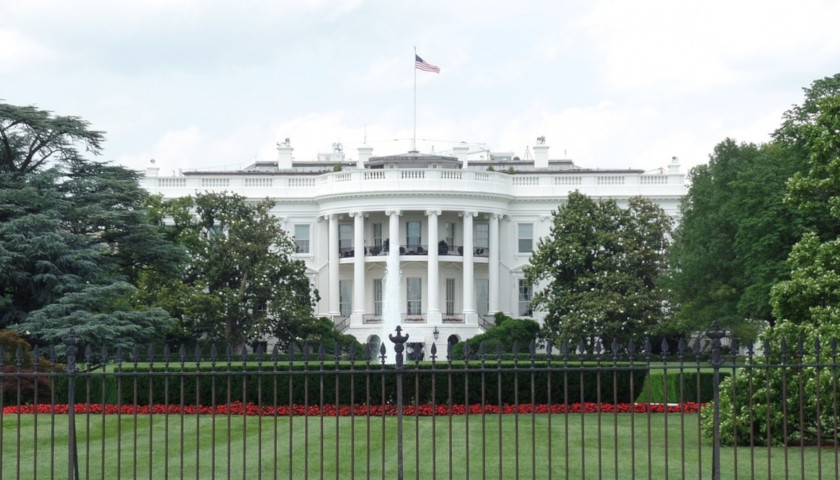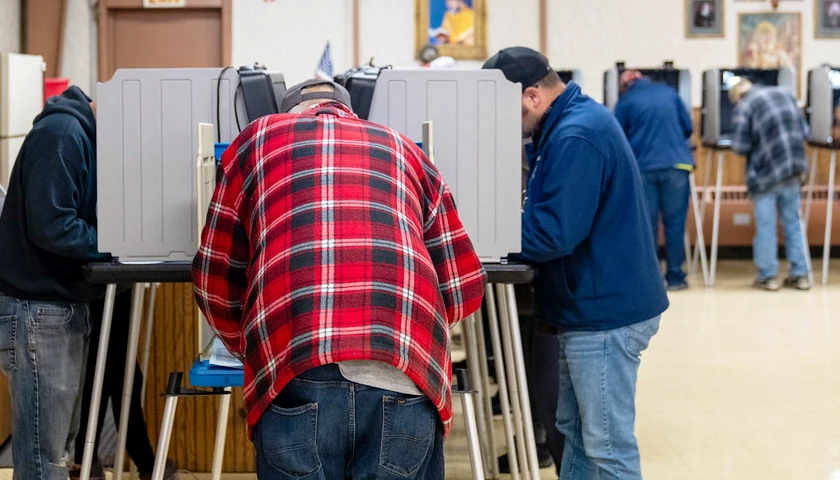by Conrad Black
It is uproariously entertaining to see the scurryings of the innumerable host of Democratic presidential candidates in what is already more of a lottery than a quest for the nomination of a great party to the world’s greatest office.
The Gadarene stampede to (and over) the edge of the abyss of all who advocate open borders, 70 percent income taxes, the green terror, socialized medicine, legalized infanticide, reparations to native and African-Americans, packing the Supreme Court, and vacation of the Electoral College, has finally elicited, in a Churchillian expression, a tiny mouse of dissent. The charge to oblivion reminds me of 1972. I had the privilege of knowing Richard Nixon in his last five years of his life and he described to me the reaction he and his wife had to the Democratic opposition of that year. Senator George McGovern (D-S.D.) was nominated on a platform that included a general income tax increase, the transportation by school buses of millions of children all around every metropolitan area to distant neighborhoods in search of “racially balanced” schools, and a capitulation to North Vietnam that was, as even the New York Times acknowledged, more humiliating to the United States than Hanoi was seeking.
It was 3 a.m. when McGovern got to give his nomination acceptance speech in Miami, but Mr. and Mrs. Nixon were in San Clemente, California and as it was only midnight, they watched the speech. Nixon told me that neither of them said a word as the speech was delivered in the Mr. Peepers monotone of the nominee, and that when he ended, the president turned to his wife and uttered this reflection: “All our time in politics, we have fought the Democrats of Roosevelt, Truman, Stevenson, Jack, Lyndon, and Hubert; all substantial and formidable men. How did that great party fall into the hands of such jerks?” (The real last word is not suitable to repeat in a family magazine.)
In 1972, McGovern fairly defeated “Scoop” Jackson, Edmund Muskie, Hubert Humphrey, and George Wallace for the Democratic nomination. All of them except Wallace were moderates and would have put up a reasonable alternative to Nixon. It is little remembered now, but Nixon withdrew from Vietnam while conserving a non-Communist government in Saigon, triangulated great power relations with China and the USSR, and started the Mideast peace process, signed the greatest arms control agreement in history, abolished the draft, ended segregation (without disrupting every school district), and founded the Environmental Protection Agency.
Nixon’s was one of the most successful presidential terms in American history, and he was unbeatable. But McGovern’s electoral death-wish gave Nixon what remains the greatest plurality in American history—18 million votes—although the electorate has increased by almost 80 percent in the intervening 47 years, from 78.3 million voters in 1972 to 136.7 million in 2016.
It is now almost too late for the Democrats to shift lanes into plausible electability. Two of the four candidates who might have done it—Michael Bloomberg and Sherrod Brown—have pulled out. Bloomberg has gone to his default position of trying to buy the office of the secretary of state, a post he would probably fill with distinction. But he has not been a good judge of political horse-flesh; he bombed out with Jeb Bush and then with Hillary Clinton, and whoever gets the nod this year will be bucking for the McGovern Prize for electoral ignominy.
Senator Amy Klobuchar of Minnesota has kept her head screwed on in policy terms but shows no sign of stirring the voters: Walter Mondale in drag.
The last and not the best hope of sane Democratic contenders is that very tired old plow-horse Joe Biden. With all his malapropisms and foolish ideas, the amiable survivor whose first run for the White House failed 31 years ago because he was caught plagiarizing from one of Britain’s most unsuccessful opposition leaders, Neil Kinnock, is at least not a terrifying radical. And now, he is being sandbagged because he allegedly touched two or more women many years ago, perfectly legally, with no discreditable intent, out of affection with no claimed sexual aspect. It is to this unimaginable depth of idiocy that the American Left’s pursuit of victimhood to be lionized and avenged, and its lust to degrade the straight, adult, white male has descended.
Biden is a memorably unprepossessing candidate for the headship of the American government. Putting tired, banal, stale, but oddly equable old Joe up against the rampaging lion who is the incumbent would be like sending Frederick the Mouse of the children’s bedtime stories to do battle with my late Siamese wondercat, Sidney. Despite Biden’s regret that he never had the opportunity at school to take Trump “behind the gym and beat the hell out of him,” any such match, politically, would be like Sonny Liston’s bout with Albert Westphal: four steps of pursuit, a one punch knockout, and, as Liston said: “I didn’t sweat, so I don’t even need a shower.”
To a slight extent, there has been a move away from the minefield of policy disaster areas mentioned in the second sentence of this piece, by South Bend, Indiana Mayor Pete Buttigieg. Of the lethal landmines upon which most of the Democratic candidates are now stamping their feet, he only seems to subscribe to the climate change fantasy and socialized medicine, though he is also an enthusiast of the putrid corpse of organized labor (now almost confined to public-sector unions).
But though there is nothing wrong with any of the following facts that make Buttigieg distinctive, America is not going to elevate to the White House a 37-year-old gay mayor of a city of 102,000 people, the pinnacle of whose political career was retiring from a run for chairman of the Democratic National Committee on the day of the election. At least Beto O’Rourke, halfwit though he is, gave it a great try for the U.S. Senate from Texas. Such is the poverty of these Democratic candidates, Mayor Pete is starting to rack up some points as an antidote to the geriatric Sanders-Biden vote, which polls show, pulls about 55 percent of Democrats.
The Democrats temporarily have become a hopeless party. As the Russian collusion fraud vanished, so did any possible argument that there isn’t really a crisis on the southern border. The Trump tax and deregulation reform, which Speaker Pelosi called “the worst disaster in history” (no “constructive Trumpian hyperbole” here), maintains full employment, noninflationary economy with rising family purchasing power and a growing workforce.
The Democrats haven’t got the message, but those who aren’t punch-drunk out of their senses will decode the political message the night of the election in November 2020. Then, when they have dug out from under the rubble of their fantasies, they can start to rebuild. Both parties have to do it from time to time. The country still seems to like to change parties in the White House every eight years, but the Democrats will have to do better than this farrago of nonsense and nonentities.
– – –
Conrad Black has been one of Canada’s most prominent financiers for 40 years, and was one of the leading newspaper publishers in the world as owner of the British telegraph newspapers, the Fairfax newspapers in Australia, the Jerusalem Post, Chicago Sun-Times and scores of smaller newspapers in the U.S., and most of the daily newspapers in Canada. He is the author of authoritative biographies of Franklin D. Roosevelt and Richard Nixon, one-volume histories of the United States and Canada, and most recently of Donald J. Trump: A President Like No Other. He is a member of the British House of Lords as Lord Black of Crossharbour.





